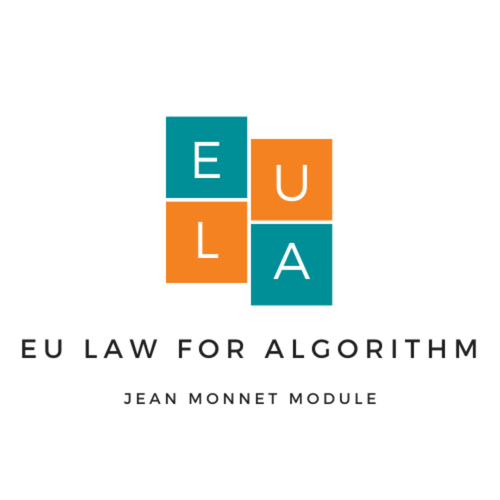
The Jean Monnet Module 'EULA - EU Law for Algorithm' investigates the impact of algorithms in the framework of EU Law. It promotes the study of these phenomena from different perspectives such as Labour Law, Private Law, Business Law and Health Law. The EULA project is hosted by the Department of Sociology and Business Law.
Algorithmic decision-making permeates our lives in numerous ways, including judgements on individual futures. This has been rising increasing concerns about the fact that artificial intelligence, based on the combination between machine learning and large data set, might allow those who use such techniques to exercise their power in ways that law should prohibits or disfavour at least.
Law scholars have dedicated in the last few years a big deal of attention to the impact of ‘algorithms’ on the exercise of human rights and the possible policy options for the governance of algorithmic transparency and accountability. The EU legislator, on its part, has demonstrated to be sensible to the issue: for example the European Union’s General Data Protection Regulation, entered into force in May 2018, is trying to provide some oversight of algorithmic decision-making with a view to protect people from the risks involved.
Through a set of research, courses, seminars and outreach activities, EULA aims at reaching a deep and comprehensive understanding of the use of Algorithms , softwares and Apps in people lives. The main beneficiaries will be students enrolled in first and second-cycle degrees in Informatics, Business Administration and Sociology in Bologna, Forlì and Cesena. More specifically, the Course "EU Law for Algorithm" will give the opportunity to students who are normally not very familiar with EU law to complement their academic curriculum by acquiring the EU legal angle on the very relevant topics dealt with by this Module.
EULA will also provide seminars for PhD candidates in Sociology and Social Research and European law, trying to integrate the two different curricula on common issues such as digital transition and algorithmic-decision making, which looks particularly important considering the topical relevance of the transition to digitalization and AI.
Finally, EULA wants to be also a space where professionals, lawyers and trade unions could dialogue and exchanging ideas. In order to do so, there will be several conferences, roundtables, the publication of results on the website in an open-acces form and the promotion of other activities in collaboration with local stakeholders.

Eula - EU Law for Algorithm is co-funded by the European Union within the Framework of Erasmus + 2021/2027.